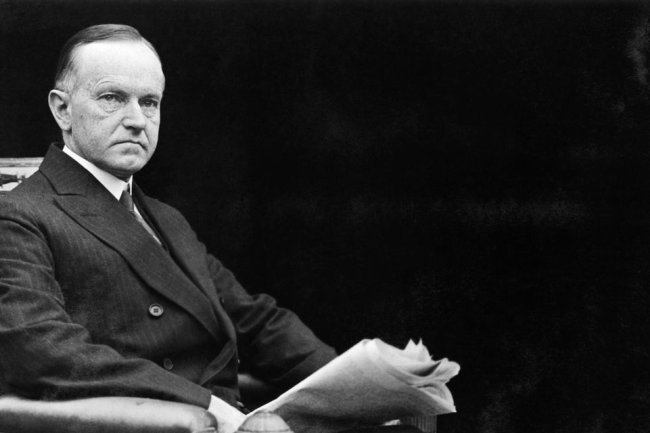Uber’s Business Is Finally Making Money After Years of Losses
Shares fall as company says ride-hailing and delivery businesses grew while freight shrank Uber’s second-quarter results were driven by growth in its core ride-hailing and delivery businesses. Photo: DAVID SWANSON/REUTERS By Preetika Rana Updated Aug. 1, 2023 11:40 pm ET Uber Technologies posted its first-ever operating profit in the second quarter, a milestone in its long-term efforts to stem losses in its businesses carrying people and delivering food. The results for the three months through June were driven by solid growth in both of Uber’s core businesses, as the number of rides in the U.S. and Canada surpassed prepandemic levels for the first time and demand for delivery stayed strong despite restaurant reopenings. The quarter was the first since Uber’s 20


Uber’s second-quarter results were driven by growth in its core ride-hailing and delivery businesses.
Photo: DAVID SWANSON/REUTERS
Uber Technologies posted its first-ever operating profit in the second quarter, a milestone in its long-term efforts to stem losses in its businesses carrying people and delivering food.
The results for the three months through June were driven by solid growth in both of Uber’s core businesses, as the number of rides in the U.S. and Canada surpassed prepandemic levels for the first time and demand for delivery stayed strong despite restaurant reopenings.
The quarter was the first since Uber’s 2009 founding that it reported its underlying operations were profitable. The easy availability of capital for much of the past decade had Uber and others burning tens of billions of dollars in an attempt to gain market share.
From 2016 through the first quarter of this year, Uber has collectively reported close to $30 billion in operating losses, according to S&P Global Market Intelligence.
“For most of our history, profitable wasn’t the first thing that came up when you asked someone about Uber,” Chief Executive Officer Dara Khosrowshahi said on a Tuesday call with analysts. “In fact, many observers over the years boldly claimed that we would never make any money…But we knew they were wrong,” he added.
The operating performance helped lift Uber to a net profit in the quarter. Uber has posted a quarterly net profit four times before, but those results were on the back of investment gains that outweighed losses in its operations.
The company projected continued growth for the third quarter ending Sept. 30.

Uber has cut hundreds of jobs this year, including in its overseas food-delivery operations.
Photo: Graham Young/Mirrorpix/Newscom/ZUMA Press
Uber had started to rein in costs back in 2019, but then the pandemic hit and crushed its ride-hailing operations. Its smaller food-delivery unit became the company’s lifeline. The company cut its head count and shed noncore businesses such as self-driving cars during the pandemic. Those savings helped it navigate a more recent economic downturn.
It was better than rival Lyft
at responding to a yearslong driver shortage after the economy reopened from Covid-19 lockdowns. That helped Uber gain market share.Lyft, which also trimmed its losses over the years and is now led by a new CEO, has yet to post its first operating profit.
Uber expanded advertising on its app over the past year. It continued to become more disciplined about spending on discounts to consumers and incentives to drivers. It said it has become better at combining deliveries and reducing errors, which improved its operational efficiency.
Your average Uber or Lyft ride cost 50% more this summer than before the pandemic. But prices were inching up even before lockdowns began. Here is what drove ride-share prices through the roof, and how the companies are working to bring them back down. Composite photo: David Fang/WSJ
Uber posted a profit of $394 million during the second quarter, compared with a loss of $2.60 billion a year earlier. That came in better than the $18 million loss that analysts polled by FactSet had expected and was driven predominantly by its operating profit, which totaled $326 million. Wall Street expects Uber to continue recording an operating profit for the rest of the year.
Uber’s revenue rose 14% to $9.23 billion, a slight miss from what analysts had expected. Its gross bookings—or the total value of transactions on its app—grew 16% to $33.60 billion, beating expectations. Bookings are indicative of consumer demand, while revenue refers to Uber’s cut from it.
Uber projected gross bookings between $34 billion and $35 billion in the current quarter. Analysts polled by FactSet expect third-quarter bookings of $34.09 billion.
SHARE YOUR THOUGHTS
What are your takeaways from Uber’s earnings report? Join the conversation below.
Uber’s ability to pull ahead has been reflected in share prices. Through Monday’s close, its shares had doubled this year while Lyft shares had risen 15%. Uber’s shares fell 5.7% after its earnings announcement Tuesday on the revenue miss. The company also announced the departure of its chief financial officer.
Uber’s freight division, which transports goods for companies and typically accounts for under a quarter of revenue, didn’t do as well. Bookings and revenue in the unit slid by 30% during the quarter.
Uber has cut hundreds of jobs this year, largely in human resources, freight and overseas food-delivery operations. The cuts—collectively accounting for less than 3% of staff—haven’t been as dramatic as those at many of its tech peers in recent months.
The company said Chief Financial Officer Nelson Chai will step down in January. A search for his successor is under way. Chai joined Uber as CFO in 2018 and led the company’s initial public offering a year later. He oversaw major deals, including Uber’s acquisition of Postmates in 2020.
Khosrowshahi thanked Chai for leading Uber to its first operating profit. “Profitability is a means and not merely an end,” he said. “Lots of challenges ahead of us,” he added.
Write to Preetika Rana at [email protected]
What's Your Reaction?













